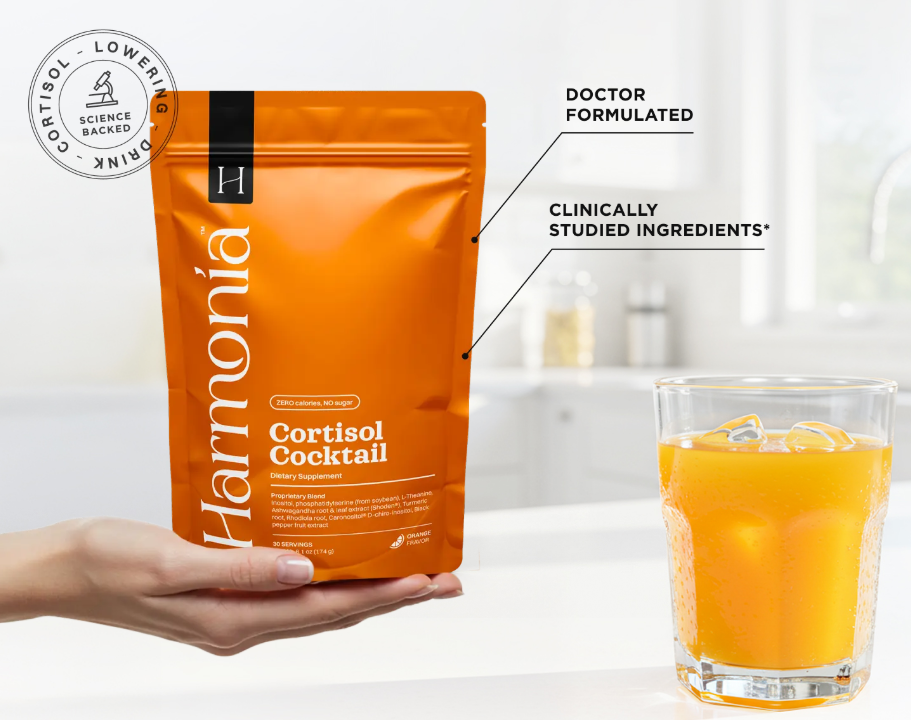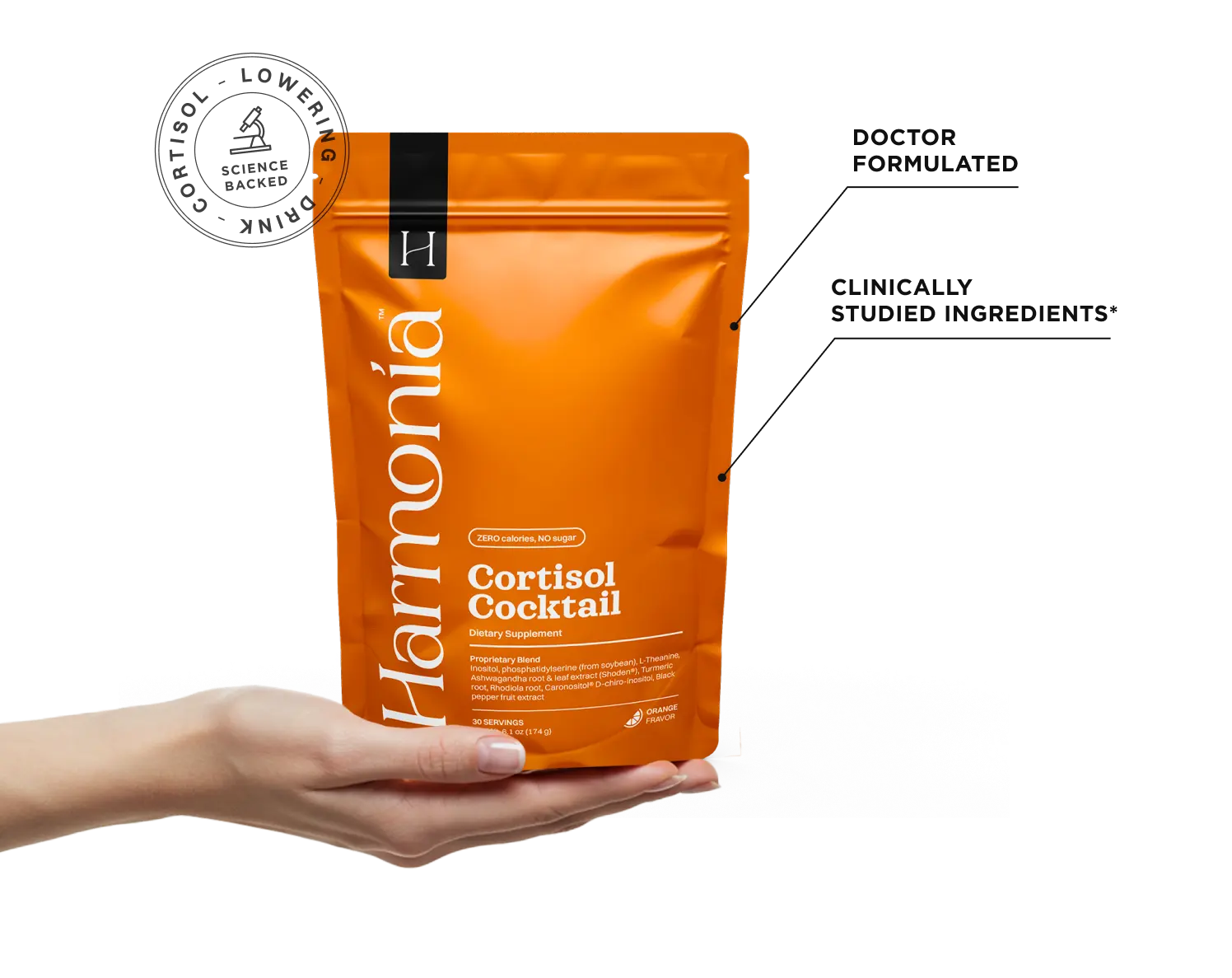Hormonal imbalance is something most women experience at some point in their lives. From irregular cycles and mood swings to fatigue and stubborn weight changes, these symptoms can feel overwhelming and disruptive. While medical treatments are sometimes necessary, many women are looking for natural ways to restore balance and support their overall well-being.
One of the most effective approaches involves using targeted hormonal imbalance supplements. Nutrients, vitamins, and plant extracts can provide the building blocks your body needs to regulate estrogen, progesterone, and stress hormones like cortisol. When paired with healthy lifestyle habits, supplements can be a game-changer for women struggling with hormonal shifts.
Understanding Hormonal Imbalance in Women
Hormones are chemical messengers that regulate almost every system in the body - metabolism, mood, energy, fertility, and even sleep. When levels of key hormones like estrogen, progesterone, insulin, thyroid hormones, and cortisol shift out of balance, symptoms can appear quickly.
Common signs of hormonal imbalance include:
- Unexplained fatigue or low energy
- Mood swings, anxiety, or irritability
- Weight gain or difficulty losing weight
- Irregular or painful menstrual cycles
- Hot flashes or night sweats during perimenopause/menopause
- Sleep problems, including insomnia or restless nights
- Food cravings, particularly for carbs and sugar
Life stages such as puberty, pregnancy, perimenopause, and menopause often bring natural hormone changes. But modern stress levels, environmental toxins, and nutrient-depleted diets have made imbalance more widespread than ever.
Why Women Turn to Supplements for Hormone Balance

While medications like birth control or hormone replacement therapy (HRT) are sometimes prescribed, they are not always the right choice for every woman. Many are seeking natural alternatives that help the body self-regulate rather than override its natural processes.
Supplements can help because they:
- Provide essential vitamins and minerals your body needs to make hormones.
- Support adrenal health to regulate stress hormones like cortisol.
- Promote balance between estrogen and progesterone.
- Reduce inflammation that disrupts hormonal pathways.
- Improve energy, sleep, and mood naturally.
For women who experience hormonal shifts related to PMS, PCOS, thyroid issues, perimenopause, or menopause, supplements offer gentle but effective support without harsh side effects.
Key Nutrients and Vitamins That Support Hormone Balance
Vitamin D
Often called the “sunshine vitamin,” Vitamin D plays a key role in reproductive health and immune balance. Deficiency has been linked to irregular menstrual cycles, fertility issues, and mood disorders. Adequate Vitamin D levels help regulate estrogen and progesterone, while also supporting strong bones.
B Vitamins
The B-complex family (B6, B12, Folate) is critical for energy production, neurotransmitter health, and stress resilience. Vitamin B6, in particular, is linked to reducing PMS symptoms like irritability and bloating. Folate and B12 help regulate homocysteine levels, important for heart health and hormone metabolism.
Magnesium
Magnesium is often called “nature’s relaxant.” It calms the nervous system, reduces PMS-related cramps, and improves sleep quality. It also plays a role in insulin sensitivity and energy regulation, making it a cornerstone for hormonal balance.
Vitamins C & E
These antioxidants protect the adrenal glands and support healthy cortisol regulation. They also improve skin health, immune function, and overall resilience against oxidative stress, which often worsens hormonal issues.
Where It Comes Together: Many of these same compounds—Ashwagandha, Rhodiola, Inositols, Turmeric, L-Theanine, Phosphatidylserine, plus supportive vitamins and minerals—are combined in the Harmonia Cortisol Cocktail. This makes it a convenient daily option for women looking to support hormonal balance, lower stress, and improve overall well-being without having to take multiple separate supplements.
Herbal and Natural Compounds for Hormonal Support

Ashwagandha
This powerful adaptogen helps lower cortisol, the stress hormone. By reducing stress and supporting the nervous system, Ashwagandha helps balance mood, reduce anxiety, and support healthier cycles.
Rhodiola Rosea
Known for its ability to enhance resilience, Rhodiola combats fatigue and supports better stress management. It helps women maintain energy and focus even during hormonal transitions.
Myo-Inositol & D-Chiro Inositol
These two nutrients are particularly valuable for women with PCOS (polycystic ovary syndrome). They improve insulin sensitivity, regulate ovarian function, and help restore healthy menstrual cycles. Together, they also reduce carb cravings and stabilize blood sugar.
Turmeric
Curcumin, the active compound in turmeric, has powerful anti-inflammatory properties. It supports healthy hormone metabolism, helps regulate lipid balance, and contributes to overall reproductive health.
L-Theanine
Found in green tea, L-Theanine promotes calmness by increasing GABA, serotonin, and dopamine. It helps counteract the stimulating effects of caffeine and improves sleep quality while reducing anxious thoughts.
Phosphatidylserine
This compound plays a key role in brain health and stress regulation. By modulating cortisol response, it helps the body adapt to stress more effectively, protecting both mood and hormonal balance.
Lifestyle Factors That Enhance Supplement Effectiveness
Supplements are most effective when combined with healthy lifestyle choices. Hormonal health is a system, and it thrives when multiple pieces are in alignment.
- Balanced diet: Prioritize whole foods, lean proteins, healthy fats, and fiber-rich vegetables to provide steady energy and nutrients.
- Sleep: Poor sleep directly increases cortisol and disrupts reproductive hormones. Aim for 7–9 hours of quality rest.
- Stress management: Practices like yoga, meditation, and breathwork keep cortisol in check.
- Physical activity: Strength training and regular movement improve insulin sensitivity and mood.
- Avoiding toxins: Limit exposure to plastics, pesticides, and processed foods that act as endocrine disruptors.
When lifestyle habits and supplements work together, results come faster and last longer.
Harmonia: Smart Cortisol & Hormone Balance Support

While many supplements contain one or two active ingredients, Harmonia was designed as a comprehensive solution for modern women dealing with stress, fatigue, and hormonal imbalance. Its unique blend combines the most effective vitamins, minerals, and herbs already discussed - making it a complete support system in one.
- Ashwagandha
- Rhodiola Rosea
- Myo-Inositol & D-Chiro Inositol
- Turmeric
- L-Theanine
- Phosphatidylserine
- Magnesium, Vitamin D, B6, B12, Folate, Vitamin C, and Potassium
Conclusion
Hormonal imbalance affects women at every stage of life, but with the right support, you can restore stability, energy, and confidence. Supplements play a powerful role in balancing hormones naturally - whether through vitamins like D and B-complex, minerals like magnesium, or adaptogenic herbs like Ashwagandha, Rhodiola, and Turmeric.
When combined with healthy lifestyle choices, these nutrients can reduce stress, improve sleep, stabilize cycles, and support overall well-being.
If you’re ready to discover a smarter way to bring your hormones back into balance, Harmonia offers a research-backed formula that unites the most effective ingredients into one easy daily drink.
Take the Harmonia Quiz today to find out how this natural solution can be tailored to your needs and start your journey toward balanced hormones and a calmer, healthier you.
References
- Anghelescu, I. G., Edwards, D., Seifritz, E., & Kasper, S. (2018). Stress management and the role of Rhodiola rosea: a review. International journal of psychiatry in clinical practice, 22(4), 242-252. Link.
- Bachour, G., Samir, A., Haddad, S., Houssaini, M. A., & El Radad, M. (2025). Effects of Ashwagandha Supplements on Cortisol, Stress, and Anxiety Levels in Adults: A Systematic Review and Meta-Analysis. BJPsych Open, 11(S1), S39-S39. Link.
- Bulman, A., D’Cunha, N. M., Marx, W., Turner, M., Mckune, A., & Naumovski, N. (2025). The effects of L-theanine consumption on sleep outcomes: A systematic review and meta-analysis. Sleep medicine reviews, 81, 102076. Link.
- Dinicola, S., Chiu, T. T., Unfer, V., Carlomagno, G., & Bizzarri, M. (2014). The rationale of the myo‐inositol and D‐chiro‐inositol combined treatment for polycystic ovary syndrome. The Journal of Clinical Pharmacology, 54(10), 1079-1092. Link.
- Grundmann, M., & von Versen-Höynck, F. (2011). Vitamin D-roles in women's reproductive health?. Reproductive biology and endocrinology, 9(1), 146. Link.
- Hyman, M. A. (2007). The life cycles of women: Restoring balance. Alternative therapies in health and medicine, 13(3), 10-17. Link.
- McCabe, D., Lisy, K., Lockwood, C., & Colbeck, M. (2017). The impact of essential fatty acid, B vitamins, vitamin C, magnesium and zinc supplementation on stress levels in women: a systematic review. JBI Evidence Synthesis, 15(2), 402-453. Link.







